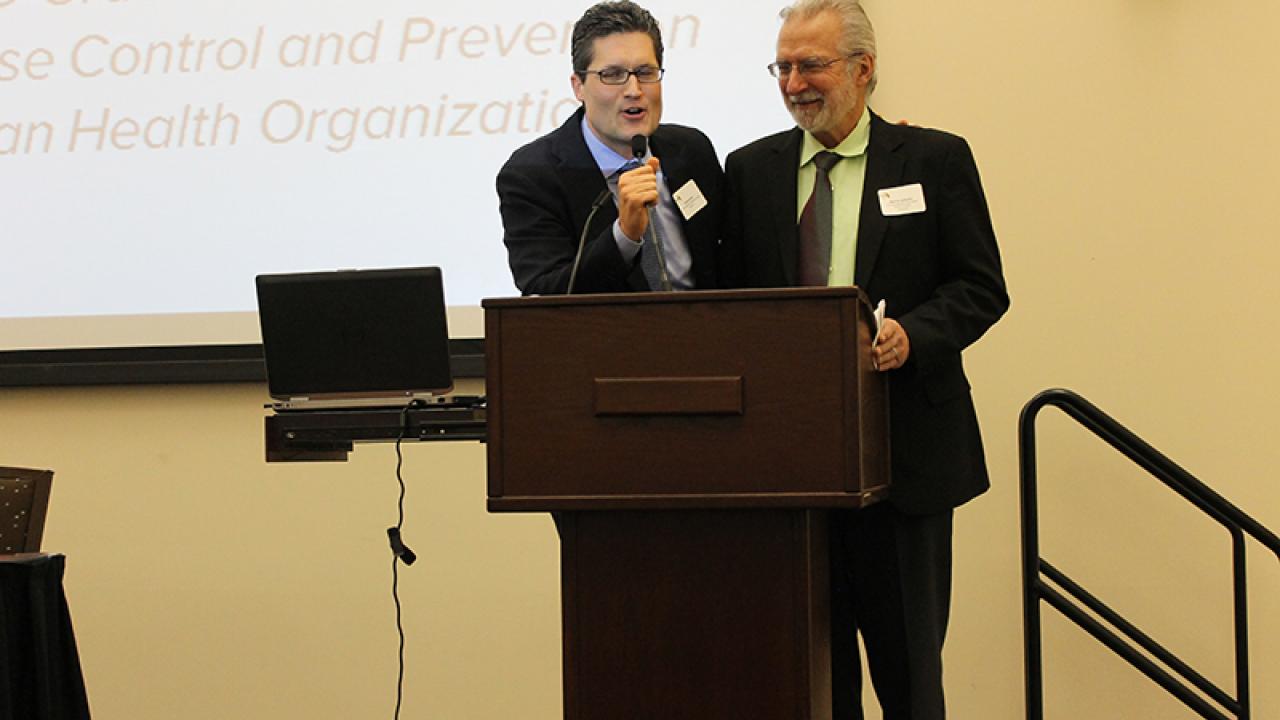
Immigration Not Just a Problem for U.S. Farming
Migrant Labor and Global Health Conference at UC Davis
On March 2-3, 2017, WCAHS helped organize the Migrant Labor and Global Health Conference at UC Davis, bringing together a multidisciplinary group of scholars and scientists for two exciting days of exploration and debate on the relationship between migrant health, economics and labor issues.
Migration is a phenomenon that involves 244 million people worldwide, and it is well-known that many of them migrate in search of better work and wellbeing for their families. The United States (US) is home to the largest number of international migrants - 80 million people are either first or second generation immigrants - and other regions are increasingly becoming recipients of migrant flow, including Europe, Asia and Latin America. Despite growing international migration, immigrants around the world face a range of health disparities and barriers to social and economic integration wherever they reside.
At the MLGH Conference, key questions were addressed, such as:
- What economic and social forces drive increasing international migration and what policies are needed to positively manage the process?
- What are the health issues (frequently overlooked) related to migration, and how do they impact immigrants and their host societies?
- Why are some of the nation’s most fundamental industries disproportionately reliant on immigrant labor, and why are these jobs often riskier to health and safety?
- What can be done to minimize the hardships associated with international migration and to successfully integrate immigrants into our labor force, neighborhoods and civic life?
The afternoon of the first day of the conference was dedicated to occupational health of immigrant workers, and one of the key focus areas was the US agricultural workforce.
The US is not the only country to face the challenges related to having a large agricultural workforce that consists primarily of immigrants. Dr. Peter Lundqvist of the Swedish University of Agricultural Sciences presented on the physical and mental health issues that migrant workers face while working in agriculture in Sweden. Certain Swedish industries, such as the dairy industry, have developed simple comic book style safety materials to effectively educate migrants on the health and safety hazards of dairy work, such as how to protect oneself against the risks of injury from large animals or machinery. The WCAHS also offers this style of training materials on dairy safety.
Many countries are grappling with a backlash against immigration. Here in the United States, many farmworkers are unauthorized and seasonal workers. Some are hesitant to return to agricultural work, such as the spring and summer harvests, out of fear that federal agents will raid farms for undocumented workers. Given the existing labor shortage, these fears pose additional challenges to farming businesses and communities dependent on this workforce.
These issues and others were explored by the diverse group of academics, professionals and thought leaders attending the MLGH conference that included journalists like National Public Radio Correspondent Tom Gjelten and the University of Southern California’s Roberto Suro; government agencies and international organizations including Nancy Leppink of the International Labour Organization, John Howard of the National Institute for Occupational Safety and Health, and Alfonso Rodriguez-Lainz of the Centers for Disease Control and Prevention, Kol Wickramage of the International Organization for Migration, and Juliette Rodriguez-Guzman of the Pan-American Health Organization.
Overall the conference was well attended, with around 180 participants and 20 institutional sponsors. Students, health professionals and advocates were well-represented in both the conference poster sessions and in the moderated panel session dialogues between the speakers and the audience. Many attendees expressed the need for more conferences of a multidisciplinary nature and the desire to keep the conversation going through future events and engagement. In the final panel session, speakers and the audience agreed on the need for greater commitment among governments and society to develop and implement policy solutions that address the challenges of international migration and its related socioeconomic, labor and health concerns. In the US, and in other countries, the future of the agriculture industry relies on addressing these important issues related to its immigrant workers.
MLGH was organized by the Migration Research Cluster and the Migration and Health Research Center at UC Davis, and received grants from the National Institute for Occupational Safety and Health (NIOSH), and sponsorship from the California Wellness Foundation, the California Endowment, and others.
Funding for this conference was made possible (in part) by the Centers for Disease Control and Prevention. The views expressed in written conference materials or publications and by speakers and moderators does not necessarily reflect the official policies of the Department of Health and Human Services, nor does the mention of trade names, commercial practices or organizations imply endorsement by the US Government.
